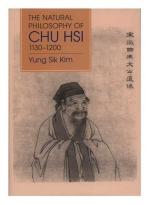|
This section contains 8,259 words (approx. 28 pages at 300 words per page) |

|
SOURCE: “The Characteristics of Chu Hsi's Thought,” in Acta Asiatica, Vol. 21, 1971, pp. 52-72.
In the following essay, Ryūtarō examines the way in which Chu Hsi criticized his predecessors and developed his own philosophical system. In particular, Ryūtarō traces the influence of Zen Buddhism on Chu Hsi's thought and discusses the differences between the Zen and Neo-Confucian treatment of various philosophical principles. Chinese characters have been deleted from this essay.
Introduction
What are the characteristics of Chu Hsi's philosophy? I shall try to elucidate its outline in this article by re-examining my past studies which I have pursued for over fifteen years.
The general trend of the Japanese world of thought today is to reject not only the achievements of the founders of Confucianism such as Confucius and Mencius, but also of the leaders of Neo-Confucianism who developed them into metaphysics such as Ch‘êng Yi and...
|
This section contains 8,259 words (approx. 28 pages at 300 words per page) |

|


